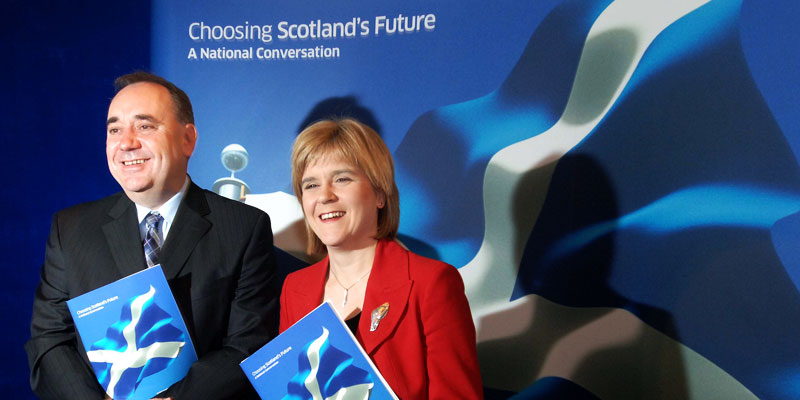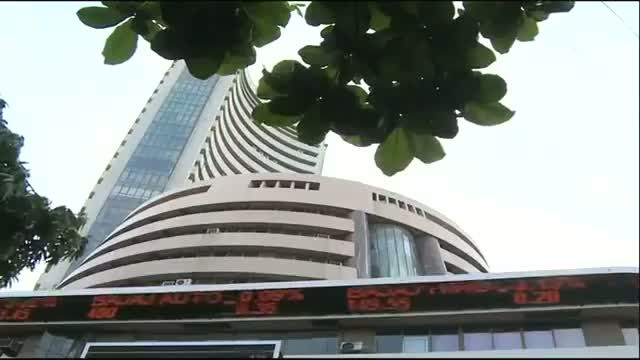The referendum, which was held on Thursday, holds the power to even change the course of British politics, weaken the nation’s economy and ultimately trigger a separate vote on whether the U.K. should leave the European Union.
People in Scotland are voting on whether the country should stay in the United Kingdom or become an independent nation.
The simple “yes” or “no” of the Scottish nationals will affect the 307 years of union and lives of people in England, Wales and Northern Ireland.
The referendum, which was held on Thursday, holds the power to even change the course of British politics, weaken the nation’s economy and ultimately trigger a separate vote on whether the U.K. should leave the European Union.
The independence movement is lead by Alexander Elliot Salmond aka Alex Salmond who is the First Minister of Scotland.
Then why did people agree to a referendum?
Looking at the history of Scotland, we will find that it is one of the oldest countries in the world which was united as a single nation by King Kenneth MacAlpin in the year 843. It remained an independent state for more than 800 years until the formation of Great Britain in 1707. That time too, there was Scottish hostility in the air.
Now Scotland has a population of little more than 5 million. It has its own legal system, and the national Church of Scotland was guaranteed under the Act of Union.
However, all monetary and finance matters are controlled by the government in London and the Bank of England.
Although the Members of the Scottish Parliament can legislate on education, health spending, housing, tourism, transport and a few other areas, they have absolutely no control over immigration, defence, foreign policy, employment, trade, energy or the main levers of finance.
The people have agreed to a referendum because they want financial freedom and more rights to their representatives in the London government.
What a “Yes” vote means?
First of all, a “yes” mean starting of series of negotiations, with a time limit of 18 months, between Scottish leaders and London-based politicians on how the two countries will separate their institutions ahead of Scotland’s planned Independence Day of March 24, 2016.
It may not necessarily mean immediate economic freedom as pound is just as much as Scotland’s currency as the rest of Britain. The Bank of England will continue to decide monetary policy day to day, with Scotland seeking input in the bank’s remit and governance.
Followers of Salmond say that the U.K. produces more than 75 per cent of the European Union’s offshore oil production, of which 90 per cent is extracted from Scottish waters, according to the European Commission’s Joint Research Centre. Based on 2012 figures, the Scottish government says this Scottish oil contributes around 24.4 billion pounds ($39.5 billion) to the U.K. economy.
In addition to oil, the Scottish government calculates the country could produce 25 per cent of the EU’s offshore wind and tidal energy and 10 per cent of the EU’s wave energy.
Scottish exports are worth around 100 billion pounds a year to the British Treasury, including more than 11 billion pounds from financial services, along with almost 9 billion pounds from food and drink, including whisky.
According to them, this industry will produce jobs and revenue until “well after 2055”. An independent Scotland would set up a Norwegian-style oil fund.
The promoters of the “yes” vote will also make agreement on the “speediest safe removal of nuclear weapons a priority” as the British government has based nuclear weapons in Scotland for almost 50 years.
The “Yes” voters think that their vote will save the National Health Service (NHS) as it believes the Conservatives promote privatization of health services.
They also believe that Scotland will be able to win recognition as an independent EU member state by March 2016 because it’s already part of the bloc, its people are already EU citizens and it already complies with EU laws.
Besides, a “Yes” vote will also ripple across the 28-nation European Union and NATO and boost independence movements around the world, including in Spain’s Catalonia region or Flanders in Belgium.
What a “No” vote means?
A “no” vote does not mean the status quo but it is a promotion of unity. Britain’s political leaders have promised Scotland’s government more powers if voters opt to stay.
The “No” voters say that if Scotland leaves the United Kingdom it loses the pound. They argue that Salmond cannot guarantee what money the Scots will use. They also say it’s not clear if an independent Scotland would seek to adopt the euro.
They say that even with oil, Scotland has run a deficit in 20 of the last 21 years. Which means every penny is already spent on public services like schools, hospitals and pensions. And nobody knows how much oil is left. The “No” campers have even come up with a figure which says that every person in Scotland will be £1400 worse off if the country breaks away from Britain.
On the issue of removal of nuclear weapons, British Defence Secretary Philip Hammond has said that relocation of the Trident weapons would cost “billions of pounds, perhaps tens of billions of pounds” and take at least a decade, which will not be feasible for Scotland.
On the issue of NHS, the London government tried to put the onus on Salmond. They said that the NHS spending is protected as a devolved issue to Scotland already. They believe the only person who could, if they wanted to, introduce more private provision into the NHS in Scotland is Alex Salmond.
Former President of the European Commission Jose Manuel Barroso has said an independent Scotland would not be able to simply remain an EU member. Spain may also veto Scotland’s membership given its concerns over Catalonia’s aspirations.
In addition to this, Scotland may become more vulnerable to terrorist attacks in a “very dangerous and insecure world” if it votes for independence, Prime Minister David Cameron has asserted. An independent Scotland would have to reapply to join NATO, and it would have to join with the caveat of refusing to have a nuclear deterrent.
Whatever the Scotland decides, will be clear to the world at 6:30 AM (GMT+1). The counting has begun.
-(with inputs from Sunday Morning Herald, Australia and The Star)





